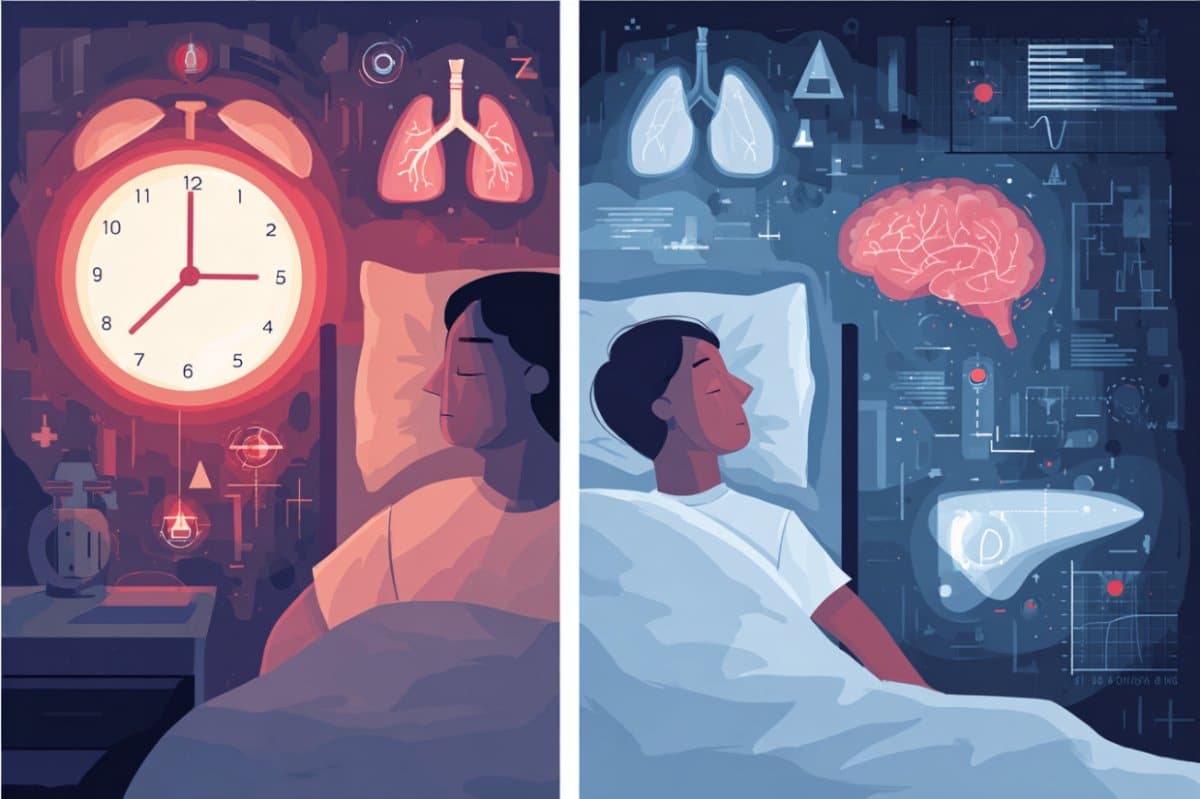T4K3.news
Irregular Sleeping Patterns Linked to 172 Diseases
A new study reveals poor sleep habits significantly increase health risks.

Recent research connects poor sleep habits to a wide range of diseases.
Irregular Sleeping Patterns Linked to 172 Diseases
A large-scale study involving over 88,000 participants has found a significant association between irregular sleep patterns and a heightened risk for 172 different diseases. Researchers from Peking University and Army Medical University analyzed data collected over nearly seven years, revealing that erratic bedtimes and unstable circadian rhythms played a critical role in this increased risk. Notably, going to bed after 12:30 a.m. was linked to a 2.57-fold increase in the risk of liver cirrhosis, while low stability in sleep patterns was tied to a 2.61-fold increase in the risk of gangrene. Contrary to previous beliefs, this study suggests that longer sleep durations might not necessarily indicate poor health, challenging the notion that sleeping more than nine hours is harmful. Instead, the research emphasizes the importance of consistent sleep schedules for maintaining health.
Key Takeaways
"Our findings underscore the overlooked importance of sleep regularity."
Prof. Shengfeng Wang emphasizes the role of consistent sleep habits in health outcomes.
"Time spent in bed is often confused with actual sleep time."
This highlights a common misconception about sleep duration among individuals.
The findings from this study bring a new perspective to the ongoing discourse about sleep and health. While previous studies often focused on the amount of sleep, this research shifts the spotlight to the regularity and timing of sleep, showcasing that inconsistency can be just as detrimental, if not more so. The implications of this research are significant, particularly for healthcare providers and those developing sleep interventions. By identifying irregular sleep patterns as a risk factor for numerous diseases, there arises an opportunity to implement changes in lifestyle and public health messaging that can effectively mitigate these risks. Furthermore, the association of sleep habits with inflammation signals potential biological pathways worth exploring further.
Highlights
- Sleep regularity is not just important; it's vital for health.
- Consistent bedtimes could reduce disease risks significantly.
- Long sleep doesn't always mean good health—efficiency matters.
- Too many believe they sleep well based on schedule, not substance.
Concerns Over Sleep Research Validity
The association between sleep patterns and health risks raises concerns about potential backlash. Misinterpretation of sleep duration could affect public perception and health recommendations.
As this evidence mounts, understanding and changing sleep behavior may hold the key to improved public health outcomes.
Enjoyed this? Let your friends know!
Related News

Research links bright night lights to heart issues

New study links disrupted sleep to dementia risk

Recognize Signs of Magnesium Deficiency

Experts recommend dietary changes for midlife health

New research links fat distribution to health risks

Oxford researchers discover why we need sleep

Study Links Gut Health to Chronic Fatigue and Long COVID

Revealing unethical medical experiments
